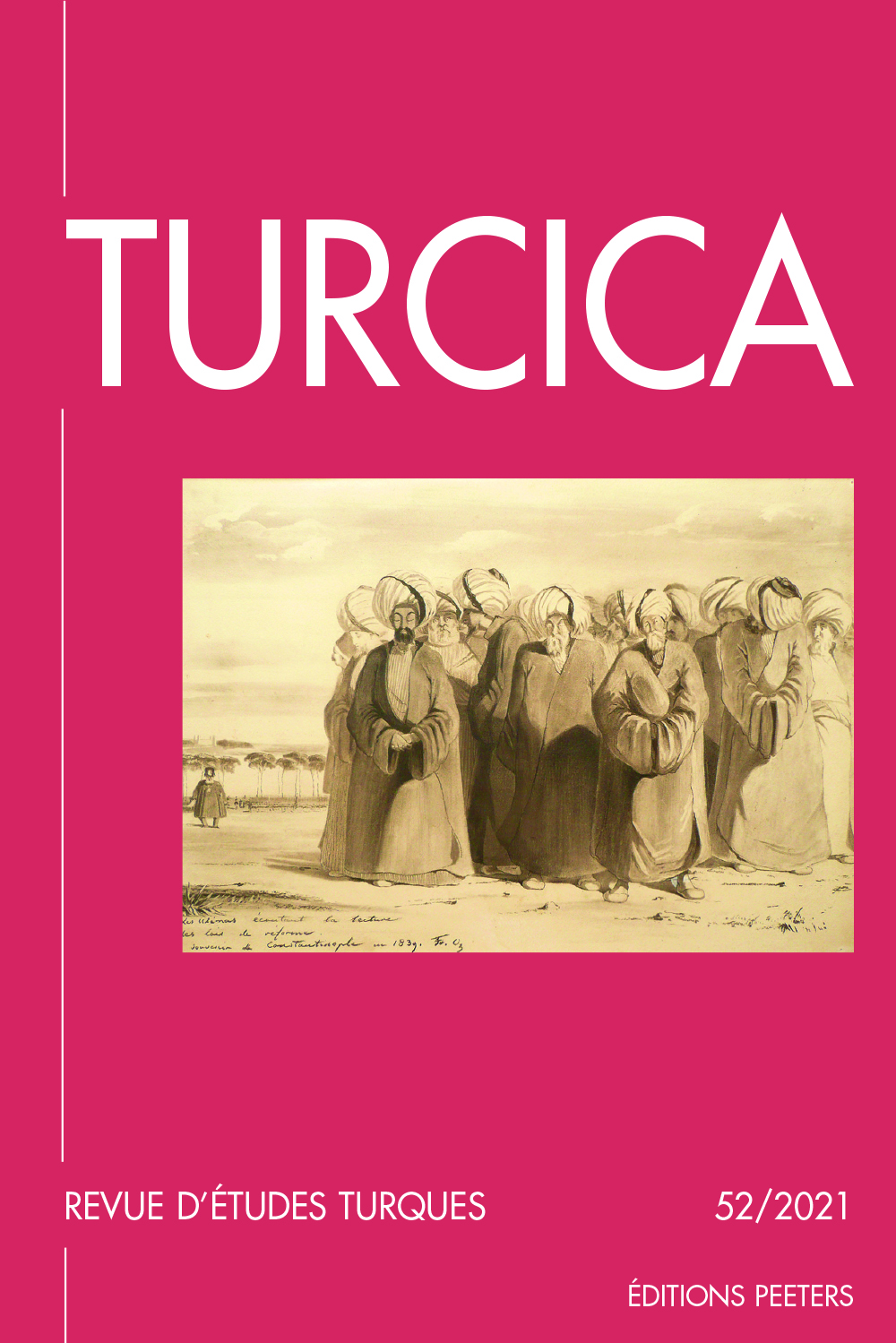 previous article in this issue previous article in this issue | next article in this issue  |

|
Document Details : Title: Abdal, l'étrange destin d'un mot - Abdal, The Strange Destiny of a Word. Subtitle: Le problème abdal vu à travers les registres ottomans - The Question Regarding the Word Abdal seen through Ottoman Tax Registers. Author(s): BELDICEANU-STEINHERR, Irène Journal: Turcica Volume: 36 Date: 2004 Pages: 37-90 DOI: 10.2143/TURC.36.0.578724 Abstract : L'ottomanisant est dérouté par le mot abdal. En turc moderne, il signifie sot, benêt, demeuré et la forme budalaqu'on en dérive est entrée avec le même sens dans plusieurs langues balkaniques. Il accompagne cependant aussi le nom de certains derviches réputés comme saints. Par ailleurs abdal s'applique à des communautés vivant en Asie centrale. On dispose enfin d'un article sur le parler d'une communauté anatolienne d'abdal, dû au regretté A. Tietze. Cette situation confuse nous a incitée à nous tourner vers les registres de recensement ottomans. Si on trouve par-ci, par-là, des abdal enregistrés parmi les pauvres et les personnes frappées d'incapacité, en revanche on rencontre aussi des communautés dites abdal. Elles se trouvent concentrées surtout dans une région qui s'étend de Çorum à Amasya et on peut suivre leur destin à partir de 1455. Elles vivent en marge des villages et deux d'entre elles possèdent une zaviyé. Le recenseur ne donne que le surnom des supérieurs à cette date, à savoir Dede fils d'Abdal Bod? et Abdal Ata. Il existe aussi une communauté anonyme s'appelant tout simplement 'abdal, sans aucune connotation religieuse. En ce qui concerne leurs croyances, il y a des indices qui suggèrent que nous avons affaire à des communautés qui adhéraient à l'origine au bouddhisme avant de se convertir à l'islam. Une autre question se pose: s'agit-il des descendants des Hephtalites? Un registre de 1455 atteste l'existence d'un village Eftelid qu'on peut repérer sur la carte au 200 000e. Par ailleurs abdal est écrit souvent avec la lettre ‘ayn ('abdal) et non pas avec un elif (abdal). Ajoutons à cela qu'on a trouvé récemment en Bactriane un texte prouvant que les Hephtalites étaient appelés èbodalo. Il est donc impossible de faire dériver abdal et budala de la racine arabe 'b d l'. Quant au fameux passage de ‘As?kpasazâde, personne ne s'est rendu compte qu'il s'agit des étapes d'un voyage à travers l'Anatolie centrale. Il fait allusion à des zaviyés, les auberges de l'époque, gérées par des communautés de derviches: les aÌî, les abdal, les gardiens du tombeau de Fatma Bac? et ceux du mausolée de Seyyid Gâzî. The word abdal seems very confusing to the ottomanist. In modern turkish it means stupid, silly, simple minded. The word budalawhich many scholars derive from abdal can be found with the same meaning in several languages of the Balkans. We can find abdal also joined to the names of persons who are deemed to be saints. On the other hand abdal is applied to communities which live in central Asia. Finally we owe to the late professor A. Tietze an article concerning the language of an abdal community in Anatolia. These confusing facts decided us to consult ottoman tax registers. They contain here and there abdalregistered among the poor and the disabled, but we meet also communities called abdal. Most of them live in a region which extends from Çorum to Amasya. We can follow their destiny from 1455 onwards. They live on the fringe of villages and two among them are holding a zaviye. The recording official mentions only the official titles of the superiors of the zaviyes?: Dede son of Abdal Bod? for the first one and Abdal Ata for the second one. There exists also an anonymous community called simply ‘abdal without any religious connotation. As to their beliefs there is some evidence that these communities were originally buddhists before converting to islam. There emerges another question. Is it possible to consider them as the descendants of the Hephtalits? A tax survey of 1455 mentions a village called Eftelid which can even be found on the map of Turkey on the scale of 1/200 000. Abdal is often written with the letter ‘ayn ('abdal) and not with an elif (abdal). We may add to this fact that a text was discovered recently in central Asia (Bactriane) which proves that the Hephtalites were called èbodalo. This makes it impossible to derive abdal and budala from the arabic root “b d l”. Concerning the famous passage in As?kpasazâde, nobody got aware that it deals with several haltingplaces of a journey in central Anatolia. The passage refers to zaviyes, the inns of that time, which were run by different communities of dervishes, the aÌî, the abdal, the guardians of the tomb of Fatma Bac? and the guardians of the mausoleum of Seyyid Gâzî. |
 |
